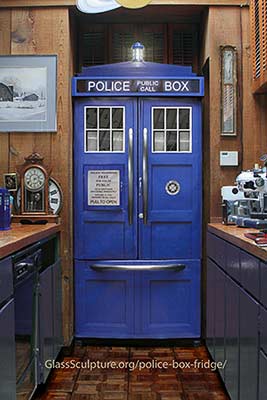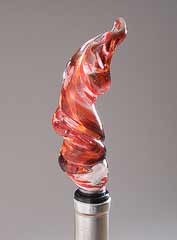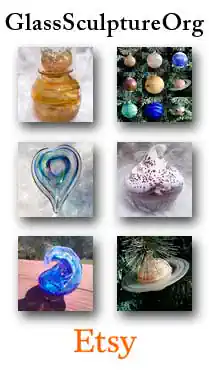
Recently a big hoohah has come about over the Jayne hats from the Firefly series, aired so many years ago, for a single season before it was cancelled. Fox owns the rights to Firefly and they chose to pretty much ignore anything to do with it for more than a decade. Meanwhile, loving fans were making hats in a certain style similar to one that a character wore. Now this wasn't a newly designed hat, made specifically for the show. It was an old, old style knitted cap with ear flaps that people have been wearing for centuries.
These fans were creating these hats on their own, while they watched tv, in their living rooms, for fun and then selling them to pay for the materials and a little bit of time. They didn't sell them on high profile websites, or in huge brick and mortar stores, just a few off of Etsy or Ebay shops. They certainly weren't mass producing them, nor were they setting up big companies to make huge profits. They were probably barely breaking even, and then not if you added in a decent wage.
They were so much fun that the company Thinkgeek, which sells lots of wonderful geeky wonderfulness, ordered 19 from one of the cottage industry craftspersons. They enjoyed them so much and were getting requests from their customers for them that they decided to get them produced for their store. Now here is where it gets sticky. Rather than talking with the small cottage industry craftspersons that they got the original hats from, Thinkgeek decided to talk to a company that produces logoed apparel.
Since Fox owns the license to the name Firefly and Jayne Cobb (the character who wore the hat), then the big company needed to get a license to use those names and likenesses in it's packaging/advertising. This company was barely aware of the show, the hat, and certainly were not fans. They were just in it to make a buck. Yes, I understand all that. Thinkgeek even worked WITH the apparel company to make the hat as close as they could to the original seen in the series. However, a mass produced hat is never going to look handmade, which was the whole point of the hat in the show — his mom MADE it for him by hand. She didn't buy it.
But I digress... OK, Thinkgeek goes along doing what they think will be best for their business, hires this awful apparel company that doesn't care about the shows they're licensing or producing, doing what IT thinks is best for its business, and they contact Fox to get the license needed to use the Firefly show/likenesses. But then..... all shit breaks loose from Fox.
I'm no lawyer, so I don't know all the fiddlybits of what actually happened, but from what I understand, Fox decides that the few people lovingly making silly little hats and selling them for no profit on Etsy are somehow a threat to their business, so bring in the huge lawyers to send cease and desist letters out and as a result, these sellers had their whole Etsy shops SHUT DOWN. Even if they were selling non-Firefly other stuff. Too bad! A small detail that escapes them in their mad rush is, not only has the hat design long been in the public domain in countries around the world, it's in Gryffindor colors.
In the backlash, Thinkgeek took a lot of heat for it. Yes, once the license had been granted to the big apparel company—where none had been needed or even considered prior—everyone is within their rights. But was that Draconian measure really necessary? As memories fade, I'm sure many fans will buy the awful looking, mass produced garbage dump of a hat. And I'm sure the crappy apparel company couldn't give two rats asses about any part of this story, except that they hope to fleece many people out of money for as many hats as they can.
Yes, I have some seething thoughts on this. It's because it hits a close nerve to me. I have a similar licensing issue with one of my products. I would love, love, love to get a license from the BBC for using the TARDIS label, the Doctor Who logo, the BBC brand name, and likenesses on my websites and packaging. Do they make it easy for small business owners? No, they make it excruciatingly hard, demeaning and outright stupid. It's no wonder Thinkgeek just went to the big apparel company that they knew already had licenses for other shows. If you're smaller, just starting doing licensing, etc., it seems impossible. It's the old "won't hire you without experience, but you can't get the experience without getting hired" thing.
I contacted, pleaded, with the BBC America licensing guy to give us a chance. He wouldn't. Wouldn't even consider it. Finally, he made an appointment for a phone call with me so he could basically tell me to stop bothering him. When I first applied, he said I didn't have a broad enough product base, so I expanded from the single fridge skin to additional skins and lighting as well, along with some jewelry pieces that we would love to make. I submitted it again. He came back with that I had too wide a product base and why couldn't I narrow it down? Huh? When I reminded him that I had expanded it because he specifically requested me to, he got upset and even more distant. Sigh. We since have designed other really killer products, some of which actually are well suited to mass production, but we're not telling them what they are without a non-disclosure agreement in place first.
What I finally got out of it was that he was not at all interested in licensing small companies that were doing short run, high quality products marketed at select places. He even tried to intimidate me by stating that he had just sent off an email to a million dollar company. (It didn't intimidate me. I congratulated him and continued on.) He wanted us to already have at least one hundred outlets in place, and to be able to mass produce product in the thousands. Well, both of those kind of negate the whole "Handmade Work of Art" concept that a high price point product would garner, and both of those things are not something I'm interested in. I like producing my artworks to a high quality and making them unique. I like knowing who will be enjoying them. I don't want to be outsourcing my artworks to China by the thousands. And I am pretty darned sure my clients don't want me doing that either.
In talking with him, and thinking about the products that he listed as being proud of, it seemed to me that he had little to no understanding of, or use for, high end products that may or may not turn an immediate huge profit. He was proud of the millions of socks, t-shirts and pajamas he had licensed. Great, yes, woohoo, but there certainly is a market for higher quality, high end, short run pieces as well, and I think licensing companies really are missing a much bigger picture of what is possible. After all, there are a sizable number of people out there who appreciate, value and search for the unique; the special. Items like these can only make the BBC and the franchise's images all that much better and more grand. And, geez, it's free money! I'd pay my licensing fee and send them a cut. What's not to like?? And I know for a fact that there are UK companies that have BBC Worldwide licenses that do NOT have hundreds of outlets, thousands of stamped out cookie cutter copies and, in some cases, more than one product—so what's BBC's resistance? I have no idea, but it sure is frustrating. Certainly makes no sense.
As a fan, and as an artist, I'm in a unique position to make something really cool of something that I'm passionate about, and that a lot of other people are passionate about owning. These combinations should be revered and given a shot, not just shut down because there isn't enough fast, visible profit. I'm not interested in making a million socks. Instead of bringing out the lawyers and shutting people down, perhaps companies should open their minds to what might be possible instead. Is that really asking for too much?
Peace, Joy
Short URL for this post: //spherical.org/s/9s












April 15th, 2013 at 5:39 pm
Such a shame that they spend their money on lawyers to stifle instead of earning revenue working with artists to license merchandise.
April 15th, 2013 at 5:50 pm
It's their loss. It's the same as the Jayne hats. It's so sad that greed over takes common sense.
April 16th, 2013 at 5:44 am
In a previous job one of my duties was to order from A Supply Depot of Office Things. I wanted twelve (12) ink pens. I got a gross (144) of pens, twelve boxes of twelve each. I called The Depot and they said, "Keep 'em." I was charged for my dozen and got 132 free.
In another previous job I searched for lost parts. At year end we went into a crunch-mode and just wrote off anything less than $100 without even a quick look-see.
If Bill Gates saw a fifty dollar bill on the sidewalk, he'd lose money stopping to pick it up.
At some point someone has to make the economic decision: is the juice worth the squeeze? Is the effort and expense of a search worth the potential gain of finding the < $100 lost item? Is the value of the returned ink pens worth the trouble of picking up the pens, or having the customer ship them back?
Some corporate mind has to make a decision influenced by whatever reasons or priorities. The decision has to make sense from some point of view. One might think that point of view requires the head shoved up the vulgar orifice. I couldn't possibly comment on THAT. I would like to know the reasons or priorities behind the decisions.
April 16th, 2013 at 10:12 am
I'd love to know the reason behind it too. I kept asking him what my minimum sales projections should be for him to approve us and he wouldn't answer me. He kept going back to that I didn't have enough distribution points lined up that I was already working through. I know for a FACT that the low run high priced replicas for sale in the UK are not in hundreds of stores. As far as I can see, they're only on their own website, yet THEY have licensing, through BBC Worldwide!
May 3rd, 2013 at 4:47 pm
I have made four Jayne hats, which I gave away or sold years ago because I look terrible in a Jayne hat* and some were special requests. I have also made an "Amigurumi Fat Baby" because it avoided the Doctor Who loophole issue. I was willing to buy the actual toy, but it took me years to find one IRL and when I finally did, I choked at the price and was glad I'd DIY'd. I hope all of these people can somehow get around this stupid crap by changing the name. I almost want to go make another damn hat out of spite, but I suspect that Ravelry and the like have probably been scoured of all hat patterns by now. (I'm afraid to check.) I gotta give huge props to the Controversial Hat story, though. "We got takedown for a She-Ra like costume but the company had no interest in licensing it so we're left unable to offer something people wanted." This is what drives me crazy about this "licensing" and "exclusivity" shit. People will buy a product if you make it and it's a reasonable price. It annoys the shit out of me that when there is clearly an audience to buy something, those in charge of it won't allow it whatsoever. "You can't infringe on MY DOMAIN!" "Okay, well, can you sell some of these instead?" "No, we don't wanna. Just shove it and don't have any." Which makes me want to send another mental cheer at the Veronica Mars movie folks for getting around that. I am sorry for ThinkGeek that they pretty much put a ton of Etsy sellers out of business. They sound sorry too--too bad there really isn't a way of putting those worms back in the can now, for them or anyone. Fucking party poopers.